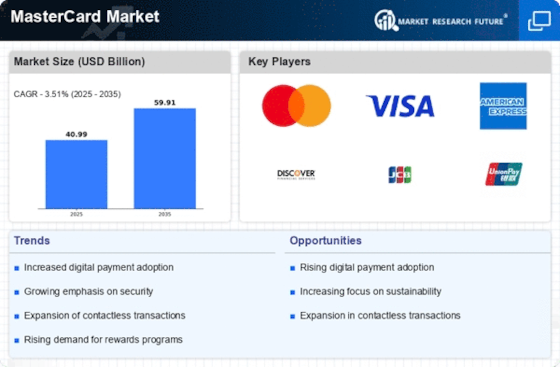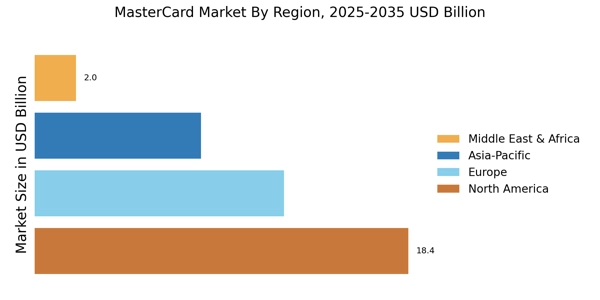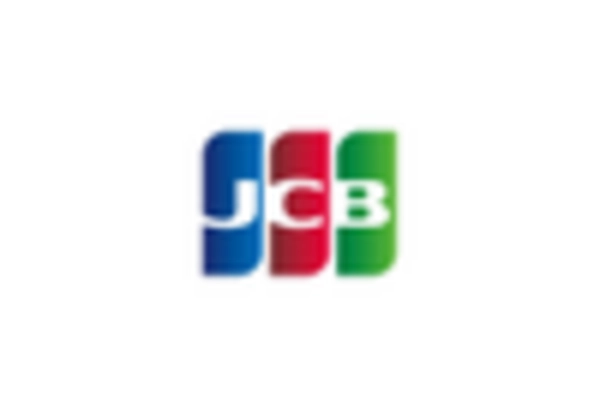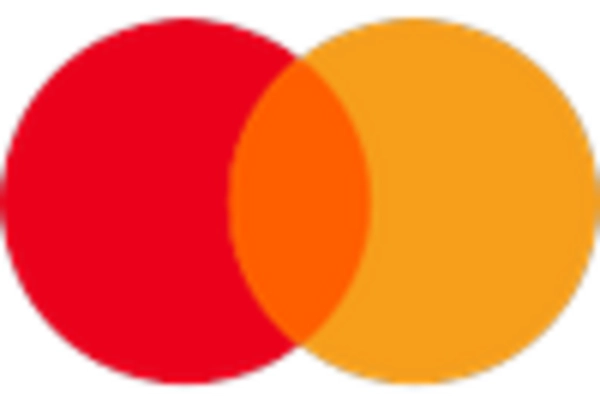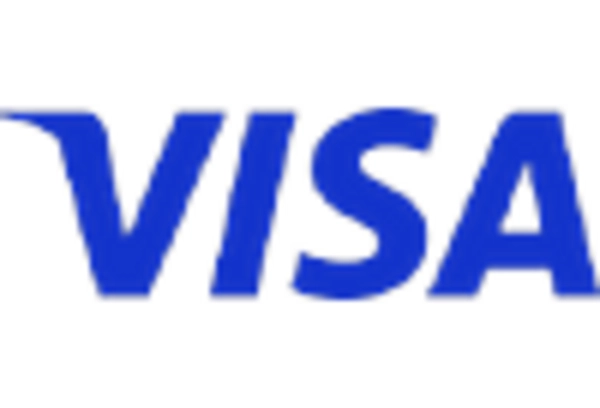Expansion of E-commerce
The Master Card Market is significantly impacted by the rapid expansion of e-commerce. As more consumers turn to online shopping, the demand for secure and efficient payment solutions has surged. Recent data indicates that e-commerce sales have increased by over 20% year-on-year, with a substantial portion of these transactions being processed through MasterCard. This growth presents an opportunity for the Master Card Market to innovate and enhance its digital payment offerings. Additionally, partnerships with e-commerce platforms are becoming increasingly common, allowing MasterCard to integrate its services seamlessly into online shopping experiences. This trend not only boosts transaction volumes but also reinforces MasterCard's position as a leader in the digital payment space.
Focus on Customer Experience
The Master Card Market is increasingly prioritizing customer experience as a key driver of growth. Companies are recognizing that enhancing user satisfaction can lead to higher retention rates and increased transaction volumes. As of October 2025, customer experience initiatives are being integrated into payment solutions, with features such as personalized offers and loyalty programs gaining traction. This focus on customer-centric strategies is likely to differentiate MasterCard from its competitors. By leveraging data analytics and consumer insights, MasterCard can tailor its services to meet the evolving needs of its customers. This strategic emphasis on customer experience may not only boost brand loyalty but also contribute to the overall expansion of the Master Card Market.
Emergence of Fintech Solutions
The Master Card Market is witnessing a transformative phase with the emergence of fintech solutions. These innovative financial technologies are reshaping how consumers and businesses interact with payment systems. Fintech companies are developing applications that offer enhanced user experiences, such as budgeting tools and instant payment processing. As of October 2025, it is estimated that fintech solutions account for approximately 15% of all payment transactions, indicating a growing acceptance among consumers. This trend presents both challenges and opportunities for the Master Card Market, as traditional payment methods must adapt to remain competitive. Collaborations between MasterCard and fintech firms are likely to increase, fostering innovation and expanding service offerings.
Regulatory Changes and Compliance
The Master Card Market is influenced by ongoing regulatory changes and compliance requirements. Governments and financial authorities are implementing stricter regulations to enhance consumer protection and ensure the security of payment systems. As of October 2025, compliance with these regulations is paramount for companies operating within the Master Card Market. This includes adherence to data protection laws and anti-money laundering measures. While these regulations may pose challenges, they also create opportunities for MasterCard to strengthen its security protocols and build consumer trust. By proactively addressing regulatory requirements, MasterCard can position itself as a reliable and secure payment option, potentially increasing its market share.
Increased Adoption of Contactless Payments
The Master Card Market is experiencing a notable shift towards contactless payment methods. This trend is driven by consumer preferences for convenience and speed during transactions. As of October 2025, it is estimated that contactless payments account for over 40% of all card transactions in various regions. This surge is likely influenced by technological advancements in Near Field Communication (NFC) and the proliferation of contactless-enabled point-of-sale terminals. Retailers are increasingly adopting these systems to enhance customer experience, thereby propelling the Master Card Market forward. Furthermore, the convenience of contactless payments aligns with the growing demand for seamless shopping experiences, suggesting that this trend will continue to shape the market landscape in the coming years.


